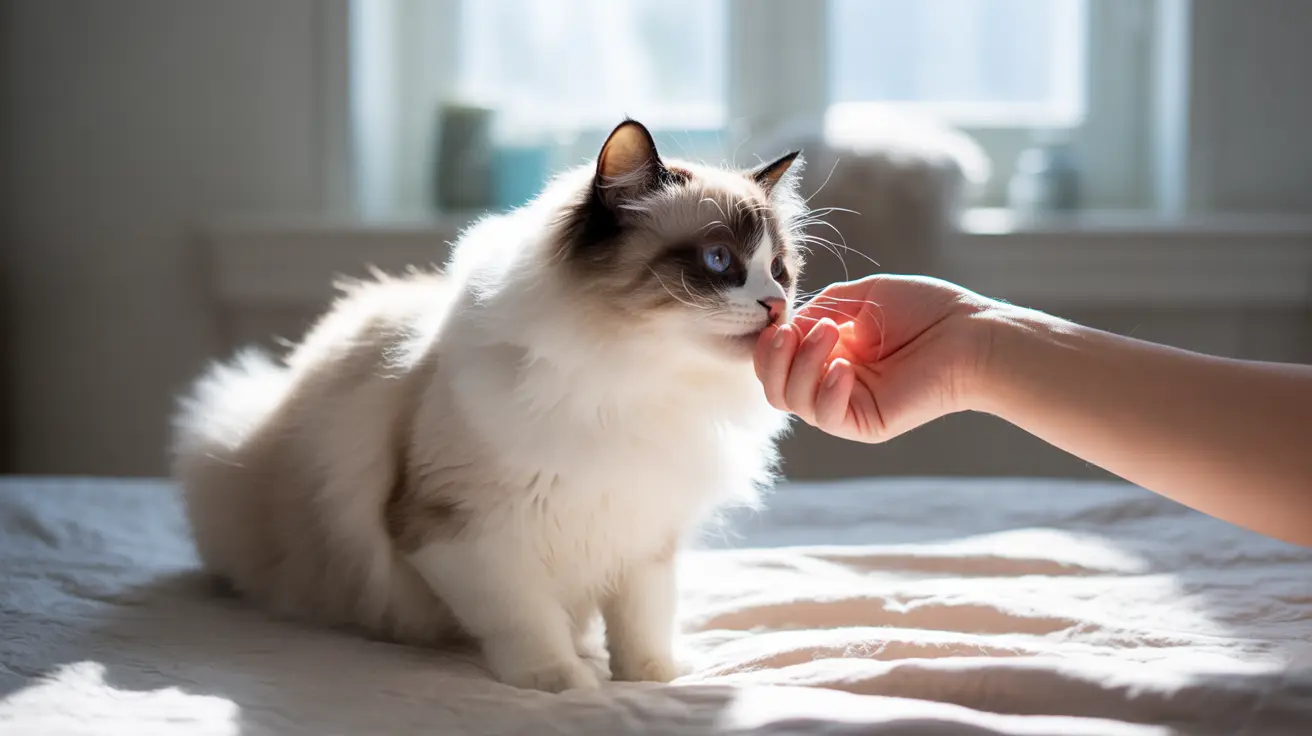If you've ever wondered why your cat transforms into an attention-seeking cuddle machine at dawn, you're not alone. Many cat owners experience their pets becoming notably more affectionate in the morning hours, displaying behaviors like purring, head-butting, and persistent following. This article explores the fascinating reasons behind your cat's morning affection and what it means for your relationship with your feline friend.
The Science Behind Morning Cat Affection
Cats are crepuscular animals, meaning they're naturally most active during dawn and dusk. This evolutionary trait explains why your cat may be particularly energetic and social when you're just opening your eyes. Their internal clock is perfectly synchronized with these twilight hours, making morning the ideal time for interaction with their human companions.
Natural Instincts and Survival Behaviors
In the wild, cats use early morning hours for hunting and social bonding with their family groups. Your domestic cat maintains these instincts, often seeking connection with you – their adopted family member – after their nighttime activities. This behavior can include bringing "gifts," seeking warmth, or simply checking in on their trusted companion.
The Role of Routine and Conditioning
Cats are creatures of habit, and they quickly learn to associate morning time with positive experiences like feeding, play, and attention. If you regularly feed or interact with your cat in the morning, they'll anticipate these moments and may become more affectionate in anticipation of these rewards.
Social Bonding and Emotional Connection
Morning affection often represents a genuine emotional bond between cats and their owners. After hours of separation during sleep, your cat may simply miss you and want to reinforce your social connection. This behavior can include:
- Gentle headbutting (bunting)
- Purring and kneading
- Following you around
- Soft meowing or trilling
Physical Needs and Communication
Your cat's morning affection might also serve practical purposes. They could be communicating various needs:
- Hunger or thirst
- Desire for fresh litter
- Need for physical warmth
- Request for play or exercise
- Seeking security after nighttime activities
When to Be Concerned
While morning affection is typically normal behavior, sudden changes in intensity or pattern might warrant attention. Watch for:
- Excessive clinginess or neediness
- Unusual vocalization patterns
- Signs of distress or anxiety
- Changes in eating or sleeping habits
- Additional behavioral changes
Frequently Asked Questions
Why is my cat more affectionate and clingy in the morning than at other times?
Cats are naturally more active during dawn hours due to their crepuscular nature. Combined with hunger, routine, and a desire to reconnect after nighttime separation, this creates peak affection time in the morning.
Could my cat's morning affection be a sign that they are hungry or expect to be fed?
Yes, morning affection often correlates with feeding schedules. Cats learn to associate morning attention-seeking with successful food acquisition, making it a learned behavior reinforced by routine.
How do a cat's natural instincts and sleep patterns influence their morning clinginess?
Cats' evolutionary programming makes them most active at dawn and dusk. Their light sleep patterns during the night mean they're ready for social interaction and feeding when humans wake up.
Can changes in my routine or environment cause my cat to be more affectionate or needy in the morning?
Yes, cats are sensitive to routine changes. Alterations in schedule, environment, or household dynamics can lead to increased attention-seeking behavior, particularly during morning hours.
When should I be concerned that my cat's increased morning affection is a sign of illness or anxiety?
Consult a veterinarian if morning affection becomes excessive or is accompanied by other behavioral changes, appetite changes, unusual vocalization, or signs of distress. These could indicate underlying health issues requiring attention.
Nurturing Healthy Morning Interactions
To maintain a positive relationship with your affectionate morning cat, establish consistent routines, respond to their attention with gentle interaction, and ensure their basic needs are met. This helps create a stable, secure environment where both you and your cat can enjoy these special morning moments together.






